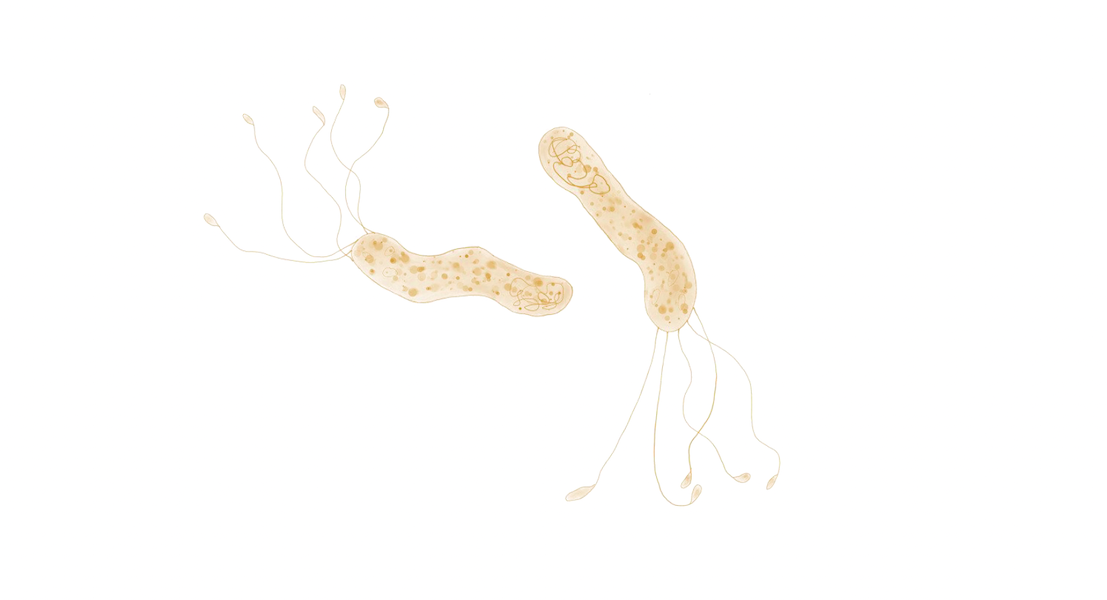Pioneering project to capture life in the stomach
A new two-year research project aims to explore the evolution of Helicobacter bacteria spanning 2 million years and a diverse array of host species. The study will investigate the important correlation between Helicobacter bacteria evolution, host stomach acidity, microbiome diversity, and host behaviour.

A knowledge gap in the stomach
Associate Professor Sandra Breum Andersen from the Center for Evolutionary Hologenomics has secured 2 million DKK from the Novo Nordisk Foundation for her ambitious new project titled "GastroEcology – capturing life in the stomach."
The project's primary focus will address a significant knowledge gap in the ecology of the stomach across mammals. Sandra highlights the essence of the project: “We know a lot about the bacteria that live in faeces because it’s easy to sample - the stomach much less so.” She continues: “Stomach acid plays a role in food breakdown and pathogen prevention and in some species, such as humans, the stomach is a harsh environment with a low pH. But a few microbes have specialised in this niche, probably because competition from other bacteria is low. Some species of Helicobacter bacteria have found a way to tolerate the acidity. Therefore, my team and I will investigate how stomach pH correlates with the diversity of the stomach microbiome and whether Helicobacter bacteria make the transition to a stomach-dwelling lifestyle when acidity is high and competition from other bacteria low.”
Smart pill for live sampling
Collaboration will be a key component of the project, as local and international researchers join forces. The team will collaborate with scientists from IDUN at the Technical University of Denmark, utilising a smart pill for non-invasive stomach sampling. The Copenhagen Zoo's veterinarians will also play a crucial role, facilitating live animal sampling.
One of the key hypotheses to be tested is whether high stomach acidity reduces stomach microbiome diversity, creating a niche for acid-tolerant Helicobacters. To validate this hypothesis, the team will collect gastrointestinal samples from various wild and zoo animals for microbiome analyses, measure pH levels, and study host behaviours facilitating Helicobacter transmission. Live animal sampling will take place at the Copenhagen Zoo using the smart pill developed at IDUN.
Join the international team
The research team, led by Sandra consists of international scientists, who all focus on host-microbe interactions within an Evolutionary Medicine and Hologenomics framework. Three postdoctoral researchers study Helicobacter pylori through mouse infection experiments, organoid cultures, and screening of clinical samples. Additionally, a postdoc and a PhD student delve into the origins of fermenting microbes.
The project also involves collaboration with Professor Rob Dunn at North Carolina State University and there is an open postdoc position to be filled working on this exciting project in close collaboration with this diverse team situated in the heart of Copenhagen.
This new project promises to shed light on the intricate relationship between Helicobacter evolution and host factors, offering valuable insights into the broader field of Evolutionary Medicine and Hologenomics.
Contact:
Associate Professor Sandra Breum Andersen.
